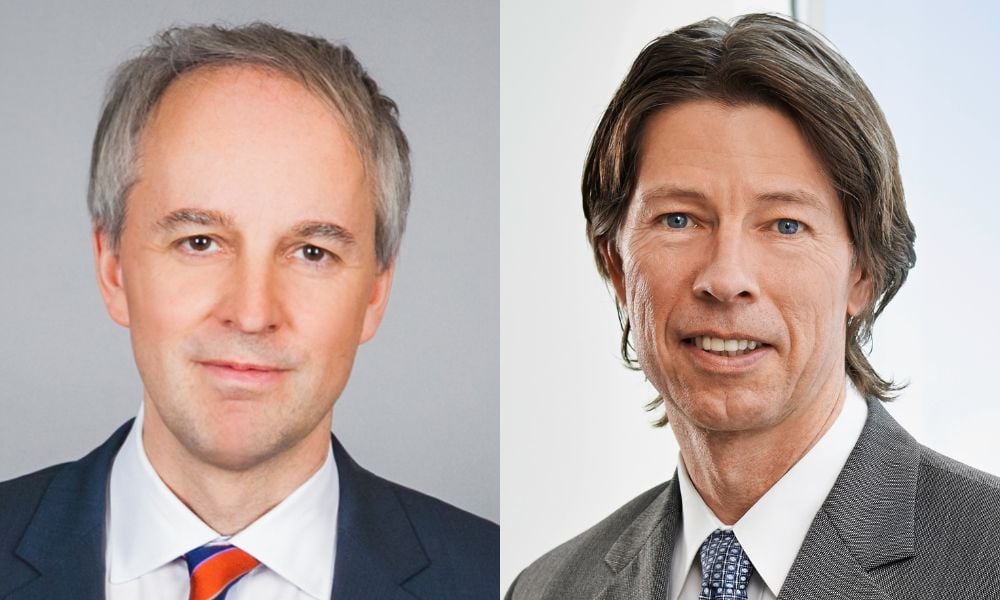
Both intellectual property practices date back to 1890s; new Smart & Biggar will have 130 lawyers

Intellectual property law firms Smart & Biggar and Ridout & Maybee LLP say their expected merger at the end of September will allow clients to access a “deeper pool” of IP expertise.
“Ridout & Maybee is a quality IP firm with a leading team of IP specialists,” says Smart & Biggar managing director Matt Zischka. “We are delighted to be able to bring together the strengths of two Canadian IP businesses as one firm.”
The two firms announced last week that they are combining under the Smart & Biggar brand. Smart & Biggar has offices in Toronto, Montreal, Vancouver, Ottawa and Calgary, while Ridout & Maybee has offices in Toronto, Ottawa and Burlington.
Established in 1893, Ridout & Maybee has 30 lawyers and 60 legal and business support staff. Smart & Biggar, founded in 1890, has over 100 lawyers, patent and trademark agents, and 235 legal & business services employees.
Zischka says Smart & Biggar and Ridout & Maybee are “complementary businesses” in terms of their “highly experienced teams, strong heritage and quality clients.”
He adds that not only will the merger bring scale to the combined law firm, enabling it to serve more and larger clients, but it will also bring greater expertise and add to the services that can be provided.
Ridout & Maybee partner Peter Everitt said members of the firm are “really excited” about joining Smart & Biggar and believe the move will “best position” it for the future, both in Canada and internationally.
“As a combined firm, we can provide enhanced career opportunities for our people and an enhanced service offering for our clients as part of a larger firm,” he says. “We believe Smart & Biggar is a good strategic fit for us.”
Everitt also notes that while the firms have the same core skills and represent “two of the oldest and most recognized names in IP law,” they run in “different circles, so there is not a tremendous amount of overlap.” This will help the merged entity serve a broader range of clients.
Zischka adds that IP law is a specialized area of practice that can take a long time to develop the appropriate skills. “It’s hard to find a core of good people to grow, and to know we have 30 or more lawyers and their support staff joining us is amazing,” he says. “It will help us become a powerhouse in the Canadian market.”
Not only will the merger be helpful on the client side, he says, it will also provide more growth potential for lawyers of both firms and allow for more effective succession planning.
Both Everitt and Zischka point out that Rideout and Maybee lawyers will benefit from Smart & Biggar’s membership in IPH Group, an international network of IP firms.
About a year ago, IPH acquired Smart & Biggar’s IP Agency, and the agency owns a part interest in an LLP formed by Smart & Biggar’s lawyer partners. The deal was valued at $348 million.
IPH is made up of IP firms in Australia, New Zealand, and the Asia Pacific region, Zishka says. Its business is spread across 25 countries in the Asia-Pacific region and includes the firms AJ Park, Griffith Hack, Pizzeys, Spruson & Ferguson, and Applied Marks.
“Joining the IPH Group is terrific for Smart & Biggar because it allows us to be part of something larger - not just a Canadian firm, but a group of IP law firms with a truly international presence.
He adds: “We can learn from each other how IP practices are run and what clients expect. It adds a dimension to us that we couldn’t get as a standalone practice in Canada.”
The merger transaction is expected to complete on 29 September 2023. Until completion, each firm will operate independently.
Everitt says that the logistics of physically moving the two firms together are still being worked out, depending on lease expirations and how hybrid work models will affect the need for space, “but the ultimate goal is to have one combined firm.”